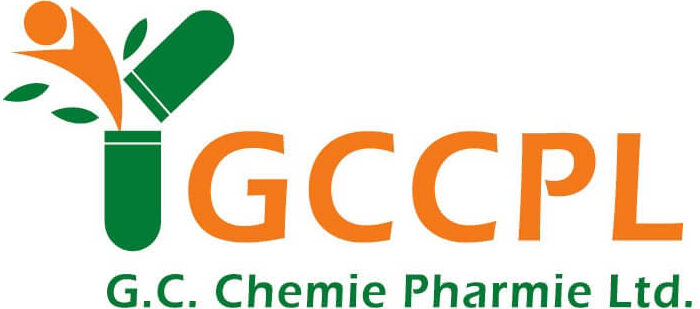In the pharmaceutical industry, innovation and expansion often go hand-in-hand with strategic collaborations. One of the most effective ways companies manage growth, reduce R&D risks, and tap into new markets is through in-licensing and out-licensing deals. These agreements help pharma companies optimize resources, share intellectual property (IP), and commercialize products across regions.
But what exactly is the difference between in-licensing and out-licensing in pharma, and why does it matter? Let’s explore the definitions, distinctions, benefits, and how leading firms like GCCPL Pharmaceuticals play a pivotal role in facilitating these strategic partnerships.
In-Licensing and Out-Licensing: What Do They Mean?
What is In-Licensing in Pharma?
Pharma in-licensing refers to the process where a pharmaceutical company acquires the rights to develop, manufacture, or market a product or technology developed by another company. It allows companies to expand their portfolios without investing heavily in R&D.
Example: A company in India in-licenses a novel cancer drug from a US biotech firm for distribution in Asia.
What is Out-Licensing in Pharma?
Out licensing in pharma occurs when a company grants the rights to another organization to commercialize or develop its product in a different region or segment. This enables firms to monetize their innovations and expand reach without building new infrastructure.
Example: An Indian company out-licenses its patented API to a European distributor for commercialization in the EU.
What are the Differences Between In-Licensing and Out-Licensing in Pharma?
While both involve IP and contractual agreements, the in licensing vs out licensing pharma approach differs in strategic intent, risk-sharing, and revenue models. Here are the key differences:
Key Differences:
- Direction of Rights:
- In-Licensing: You acquire rights from another company.
- Out-Licensing: You grant rights to another company.
- Objective:
- In-Licensing: Expand product portfolio without R&D investment.
- Out-Licensing: Monetize innovations and reach new markets.
- Control:
- In-Licensing: Licensee gains operational control.
- Out-Licensing: Licensor retains ownership and earns royalties.
- Risk & Cost:
- In-Licensing: Reduces development risk but requires upfront payments.
Out-Licensing: Lowers financial burden and shares development costs.
In-Licensing vs. Out-Licensing Comparison Table
| Feature | In-Licensing | Out-Licensing |
| Definition | Acquiring rights to a product or IP | Granting rights to a product or IP |
| Purpose | Expand pipeline, reduce R&D burden | Commercialize innovation, expand markets |
| Investment Level | High (upfront + milestone payments) | Lower (may receive royalties/milestones) |
| Control Over Asset | The licensee manages development/commercials | Licensor retains ownership |
| Common in | Generic and emerging markets | Innovative or research-driven companies |
| Example | In-licensing a novel drug for local use | Licensing a patented molecule overseas |
Advantages of In-Licensing and Out-Licensing Pharma
Both strategies offer unique benefits depending on company goals, product lifecycle, and market dynamics.
Advantages of In-Licensing:
- Faster access to innovative products
- Reduced R&D investment and time-to-market
- Strategic market expansion without in-house development
Advantages of Out-Licensing:
- Monetization of IP without manufacturing or marketing overheads
- Entry into international markets via local partners
- Revenue through licensing fees and royalties
Together, these approaches drive pharma industry innovation, reduce risk, and strengthen global collaborations.
How Can GCCPL Help You with Pharmaceutical Licensing?
As a top pharmaceutical company in India, GCCPL Pharmaceuticals supports both in-licensing and out-licensing arrangements, acting as a reliable partner for strategic growth.
Global Market Access: We help companies expand across regulated and emerging markets through licensing partnerships and distribution networks.
Strategic Partnership Alignment: Our team identifies the right partners and product fits for successful long-term collaboration, both for in-licensing and out-licensing.
Regulatory & Technical Expertise: With deep expertise in regulatory documentation, filings, and international compliance, GCCPL ensures licensing processes meet global standards.
Trusted & Transparent Process: We offer a collaborative, transparent approach that ensures IP protection, mutual benefit, and long-term relationship management.
Accelerated Licensing Journey: From legal frameworks to technology transfer, we fast-track the licensing timeline, ensuring quicker market readiness and success.
Conclusion
Understanding the difference between in-licensing and out-licensing in pharma is key to unlocking value, innovation, and global market potential. Whether you’re a small biotech firm with a promising molecule or a global player looking to expand your reach, in-licensing and out-licensing offer flexible, strategic avenues.
At GCCPL Pharmaceuticals, we provide end-to-end support for licensing partnerships, combining our regulatory strength, market knowledge, and technical expertise to ensure every deal is structured for long-term success. In today’s competitive and collaborative pharmaceutical world, licensing is not just a transaction — it’s a strategic pathway to growth.
FAQs
1. What is the main difference between in-licensing and out-licensing?
In-licensing involves acquiring rights to develop or market a product, while out-licensing involves granting those rights to another company.
2. How does out-licensing work in pharma?
A company licenses its innovation to a partner who handles development, marketing, or distribution, often in exchange for royalties or milestone payments.
3. Is in-licensing more beneficial for generic drug makers?
Yes, pharma in licensing helps generic firms quickly expand portfolios without heavy R&D investment or regulatory delays.
4. What support does GCCPL provide for licensing deals?
GCCPL facilitates partner identification, compliance support, documentation, and negotiation to ensure successful licensing outcomes.


